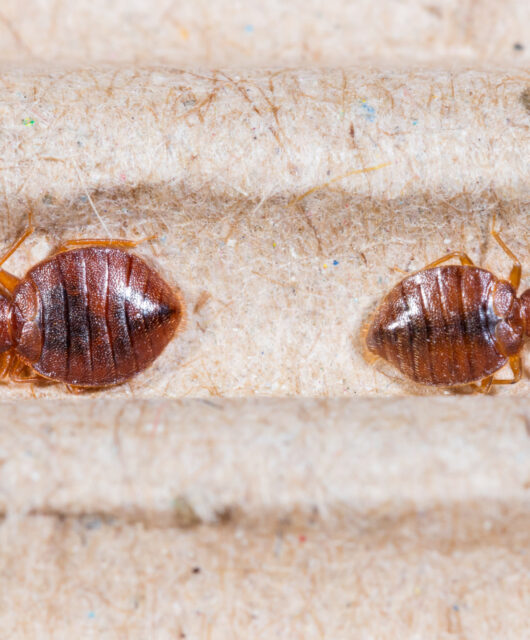A Guide to Basic Aircraft Maintenance
Is your aircraft ready for smooth and safe flights? Just like taking care of a well-oiled machine, proper maintenance is key. Welcome to our guide to basic aircraft maintenance, where we’ll walk you through essential steps to keep your aircraft engine in top shape.
From pre-flight inspections to spark plug care, fuel system maintenance to temperature monitoring, we’ve got you covered. Whether you’re a seasoned pilot or a curious aviation enthusiast, this guide will empower you with the knowledge to ensure your aircraft stays soaring high. Get ready to give your wings the TLC they deserve!
Table of Contents
Regular Inspections
Just like going for a regular check-up at the doctor’s, your aircraft engine needs inspections too. Before every flight, it’s essential to perform a pre-flight inspection. During this inspection, you want to be on the lookout for any signs of potential problems.
Leaks
First, carefully inspect the engine for any signs of leaks, such as oil or fuel stains. Leaks can indicate a damaged or worn-out component that may require immediate attention.
Additionally, look out for loose connections. Ensure that all hoses, wires, and fittings are secure and properly fastened. Loose connections can lead to malfunctions or disruptions in the engine’s performance.
Fuel Levels
Next, check the oil and fuel levels. It is important to ensure that the engine has sufficient oil for proper lubrication and fuel for efficient combustion.
Inadequate levels can lead to engine damage or failure. Refer to the manufacturer’s guidelines to know the appropriate oil and fuel levels for your specific aircraft model.
Engine Condition
In addition to fluid levels, inspect the overall condition of the engine. Look for any visible damage, such as dents, cracks, or corrosion. These issues can compromise the structural integrity of the engine and affect its performance. Pay attention to any unusual sounds, vibrations, or odors that may indicate a problem.
Engine Controls
Furthermore, ensure all the engine controls are in proper working order. Test the throttle, mixture, and propeller controls to ensure they move smoothly and respond correctly.
Check the ignition switches and electrical systems, ensuring that all components are functioning as they should. Any issues with the engine controls can significantly impact the aircraft’s ability to operate safely.
Cleanliness Matters
Maintaining a clean aircraft engine is crucial for its proper functioning and longevity. Just like how dust and dirt can hinder the performance of your home appliances, they can also affect your aircraft engine. Over time, dust, dirt, and debris can build up on the engine’s exterior, which can impede its airflow and cooling capabilities.
To keep your aircraft engine clean, it’s a good practice to regularly wipe the exterior surfaces using a soft cloth or brush. This helps remove any accumulated dirt or grime. However, it’s important to be gentle and cautious while cleaning to avoid causing any damage to the delicate components of the engine.
In addition to cleaning the engine’s exterior, it’s crucial to pay attention to the air filters. Air filters are like the engine’s lungs. They filter out dirt and contaminants from the air before it enters the engine.
Over time, these filters can become clogged with debris. This will reduce the filters’ efficiency and potentially allow dirt to enter the engine. To prevent this, make sure to clean or replace the air filters regularly, as recommended by the aircraft manufacturer.
Oil Changes
Think of your aircraft engine’s oil as its lifeblood. Just like your car needs regular oil changes to keep the engine running smoothly, your aircraft engine also requires this essential maintenance task.
The oil in the engine serves a vital role in lubricating its moving parts. It’s also essential in reducing friction and preventing wear and tear. To know when to change the oil in your aircraft engine, check the manufacturer’s guidelines. They will provide specific recommendations on how often the oil should be changed based on factors like flight hours or elapsed time.
Also, use the correct type and grade of oil. This is crucial for your aircraft engine’s health. The manufacturer will specify the appropriate oil to use.
Spark Plugs and Ignition System
Think of your aircraft’s spark plugs and ignition system as the key players responsible for starting your engine and keeping it running smoothly. They work together to create the spark that ignites the fuel, setting off the combustion process that powers your aircraft.
To ensure your engine runs reliably, it’s important to regularly inspect the spark plugs. Look for any signs of wear or fouling. This includes erosion or a buildup of deposits.
Over time, these issues can affect the spark plugs’ performance. It can make it harder for them to generate a strong spark. So, if you notice any damage or dirtiness, it’s best to replace the spark plugs promptly.
Temperature and Pressure Monitoring
Monitoring the temperature and pressure of your aircraft’s engine is like keeping an eye on its health. Just as you might check your own body temperature or blood pressure to detect any issues, it’s crucial to regularly monitor these important indicators for your engine.
During your flight, pay close attention to the engine gauges that display the temperature and pressure readings. These gauges provide valuable information about the engine’s condition and performance.
It’s important to ensure that the readings stay within the recommended ranges specified by the aircraft manufacturer. This helps ensure that the engine is operating optimally and within safe limits.
Regular Servicing by Professionals
It’s vital to schedule regular professional servicing. Trained mechanics have the knowledge and expertise to inspect and maintain your engine better.
During their servicing, they use specialized tools and techniques to examine every aspect of your engine. They can detect potential aircraft problems or underlying issues that may not be visible during basic maintenance. This allows them to address these concerns before they develop into more significant and costly problems.
Before purchasing an aircraft, check if it is well-maintained to ensure its good condition. You can have a professional do the inspection as they have the proper expertise on how it is done.
Maintaining Your Aircraft Engine
When it comes to aircraft engine maintenance, knowledge is power. Utilize this guide to understand what basic aircraft maintenance entails in order to keep your aircraft functioning properly.
Ensure that all preventive maintenance tasks are completed according to the schedule provided by the aircraft manual to reduce risks and improve performance. With the right knowledge and techniques, reliable use of your aircraft can be promoted!
Looking for more informative reads? Visit our blog daily!









